/Human Activities/Various
Type of resources
Available actions
Topics
Keywords
Contact for the resource
Provided by
Representation types
Update frequencies
status
Scale
Resolution
-
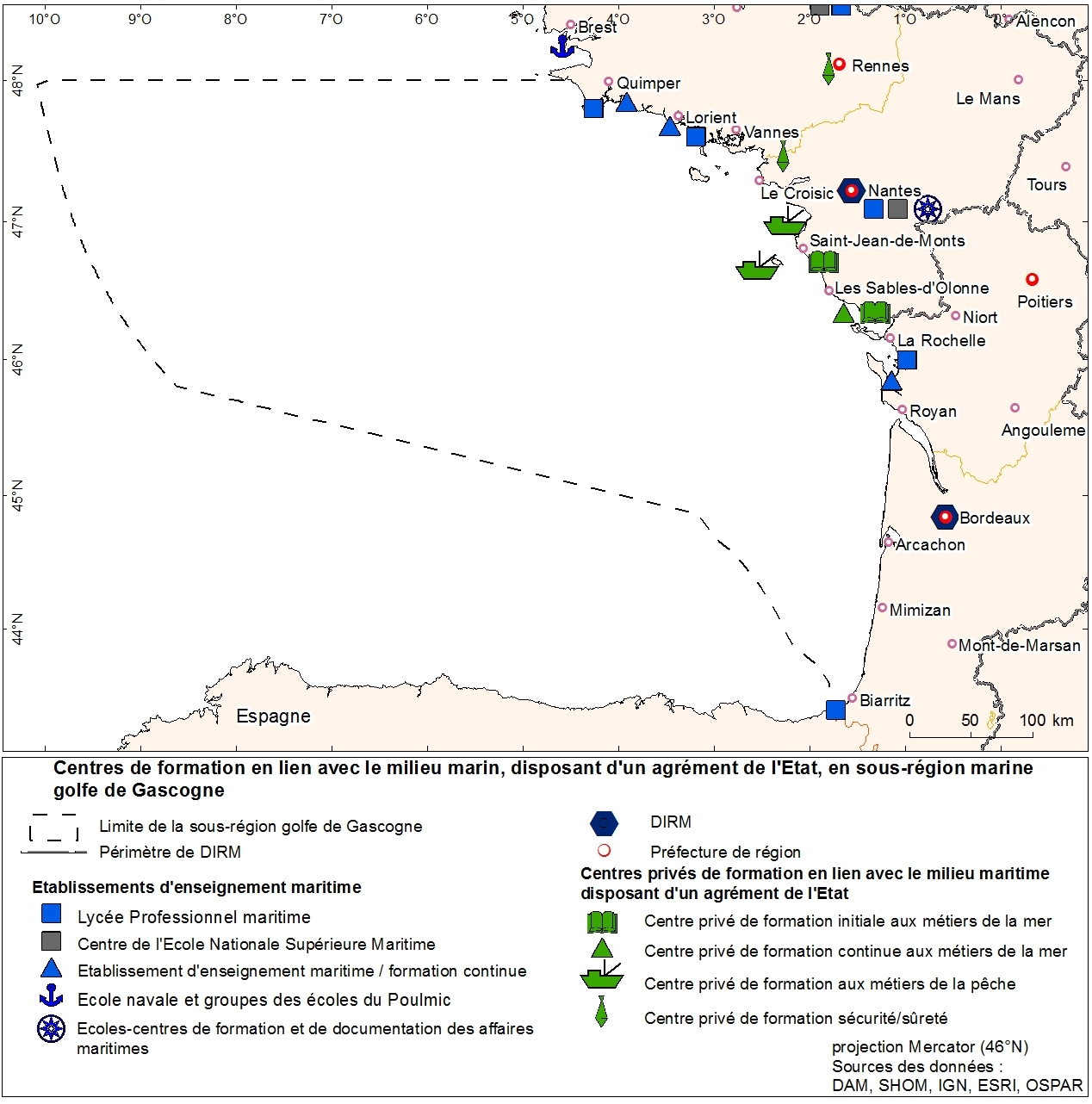
Agencies education in marine trades geolocalized to municipality. This information was produced as part of the initial assessment of the MSFD. Referent expert Sophie Devergie. WARNING: the spatial structure of the data must be improved because it contains superpositions of points (several training agencies per commune). Here the tool "Representation" of ArcGIS was used to facilitate the mapping of the data that does not meet basic standards of the topology. Ultimately, the quality of the data can be improved by refining the address geolocation.
-
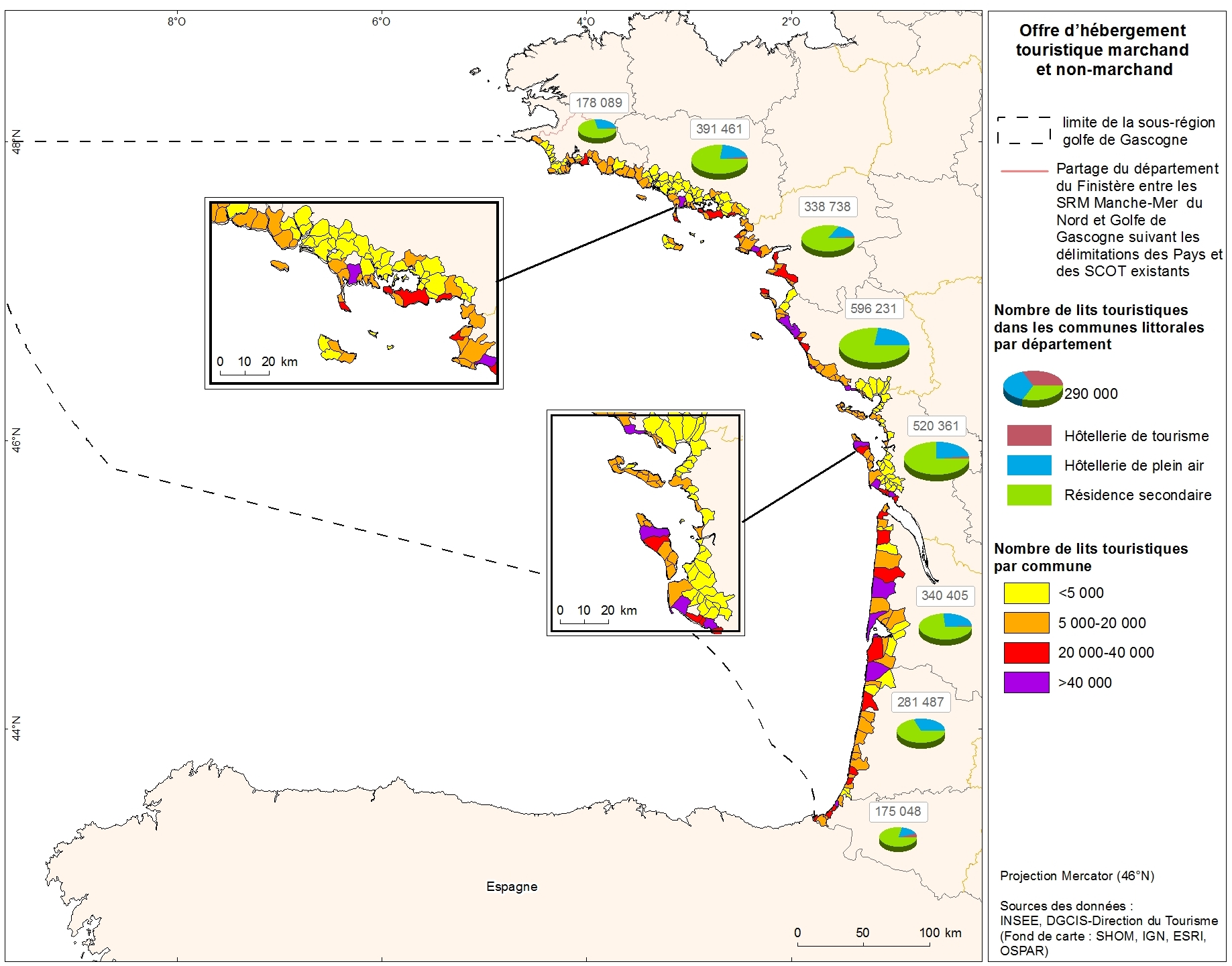
Number of tourist accommodations in coastal departments of marine subregions of the MSFD for the English Channel and North Sea, Western Mediterranean and Bay of Biscay. The data, collected as part of the initial assessment of the MSFD, is from the INSEE, DGCIS-Department of Tourism. The department of Finistère was divided into two (North and South Finistère) based on the limits of marine subregions MSFD of the English Channel North Sea and Bay of Biscay.
-

Number of tourist accommodations in coastal communities of marine subregions of the MSFD for the English Channel and North Sea, Western Mediterranean and Bay of Biscay. The data, collected as part of the initial assessment of the MSFD, is from the INSEE, DGCIS-Department of Tourism. Referent expert: Aurélien Guingand.
-
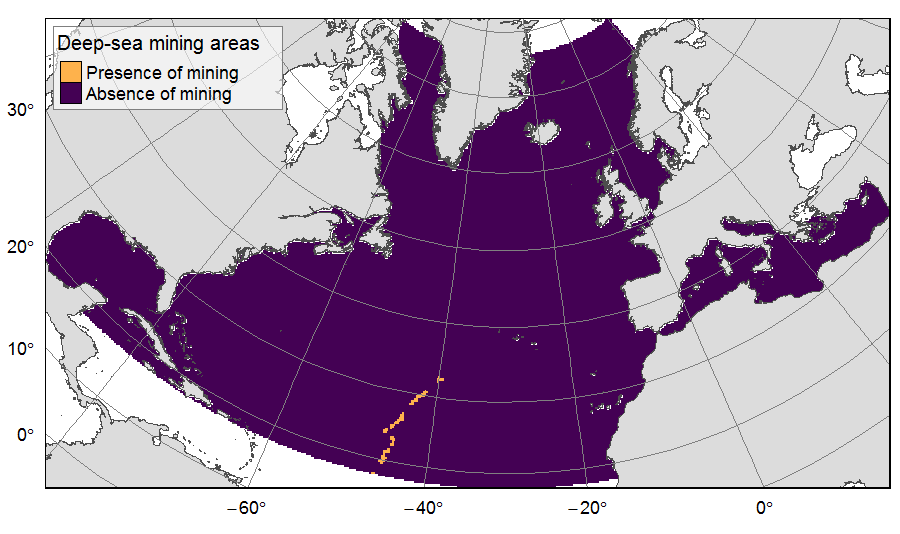
Presence of deep-sea mining exploration zones on the North Atlantic (18°N to 76°N and 36°E to 98°W). These areas correspond to the three polymetallic sulphides exploration contracts on the Mid-Atlantic Ridge, attributed to Poland, France and Russia. Each of the three contract areas is divided into 100 squares of 10km by 10km. Source polygons originated from the International Seabed Authority. The presence (value=1) of deep-sea mining was extracted in 25km * 25km gridsquares. This dataset was built to feed a basin-wide spatial conservation planning exercise, targeting the deep sea of the North Atlantic. The goal of this approach was to identify conservation priority areas for Vulnerable Marine Ecosystems (VMEs) and deep fish species, based on the distribution of species and habitats, human activities and current spatial management.
-
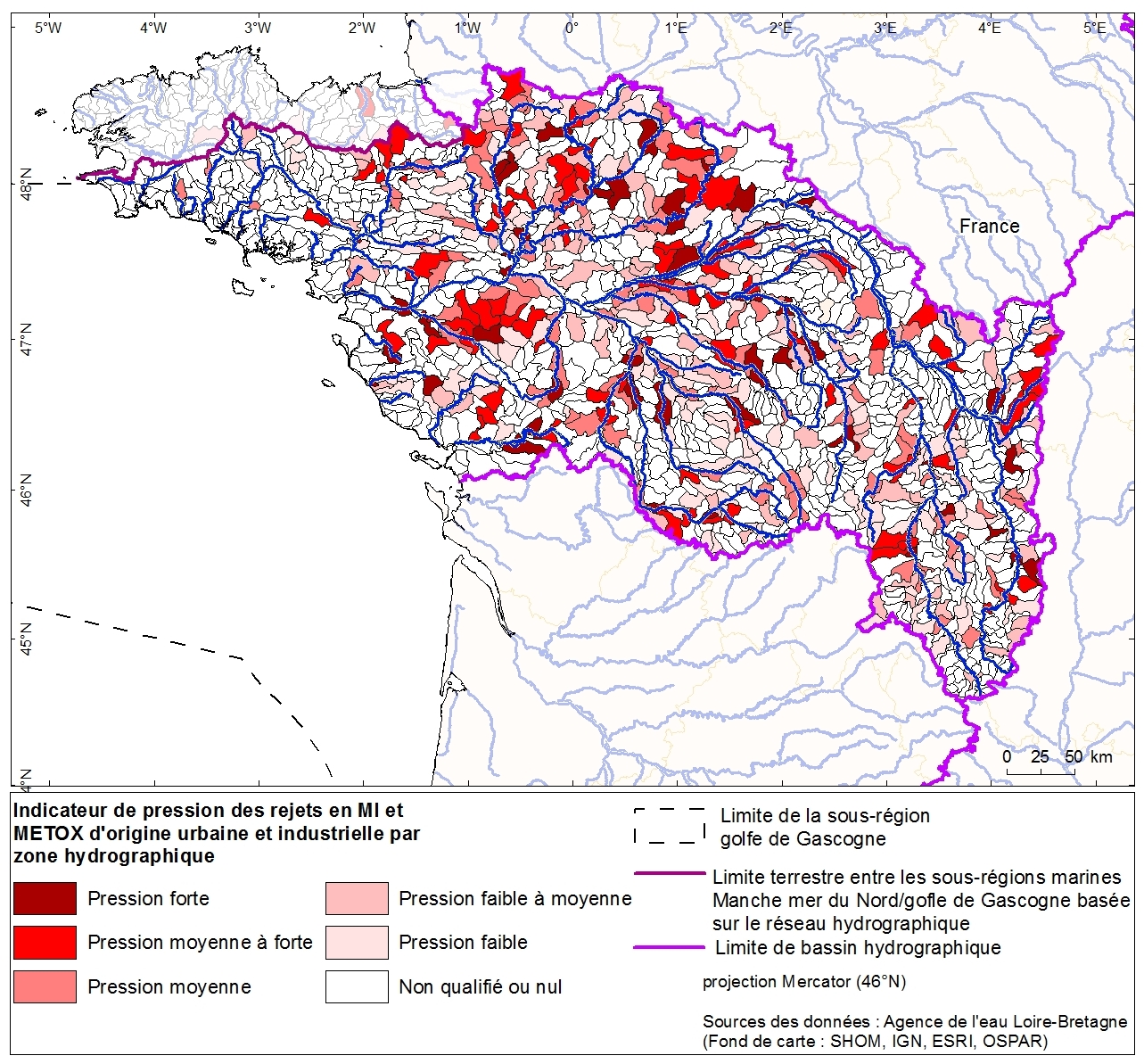
Toxic discharges from urban and industrial sources per hydrographic zone of the Loire Bretagne basin. This data was collected as part of the initial assessment of the MSFD with the Water Agency of Loire-Bretagne. Referent expert AAMP: Aurélie Blanck.
-
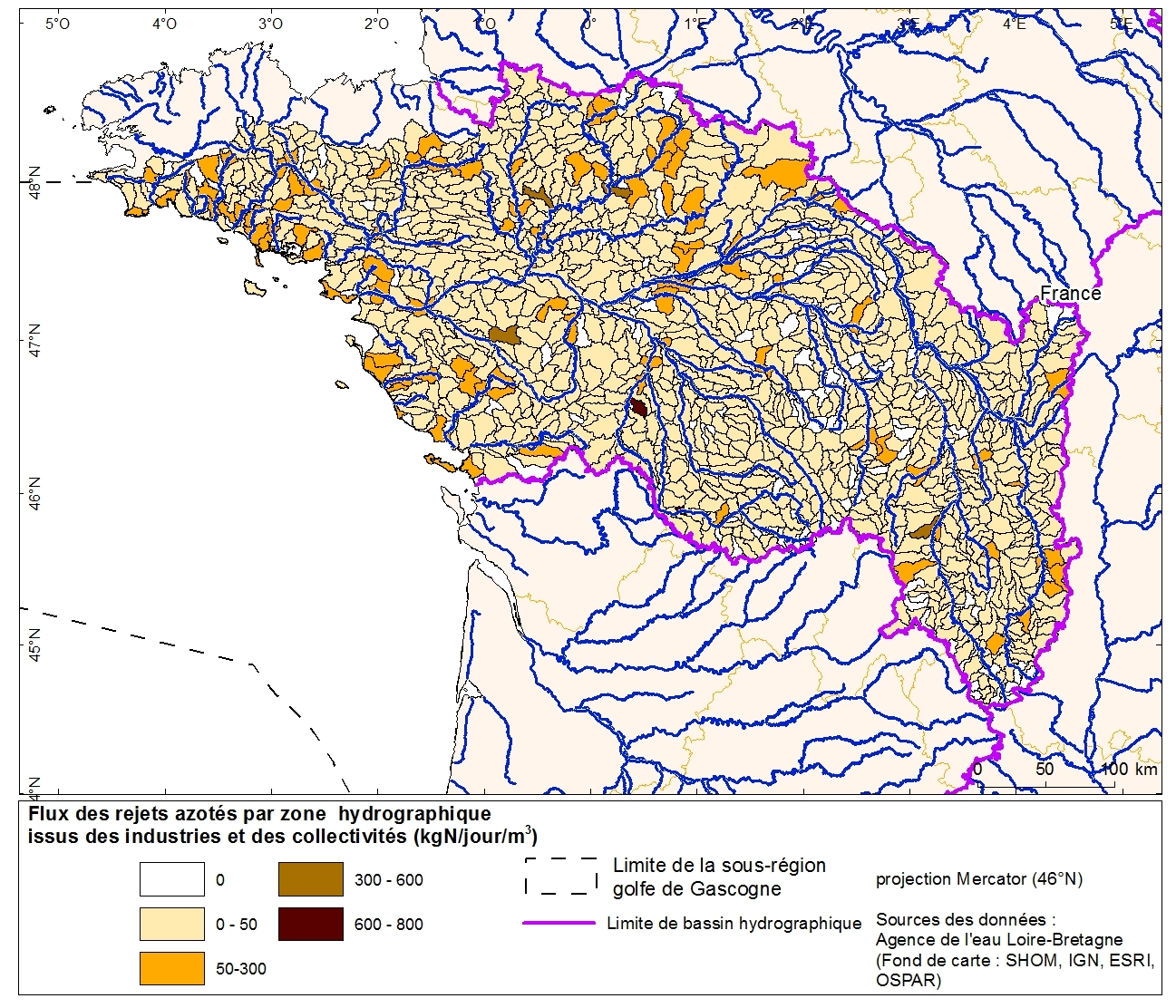
Discharges of nitrogen, phosphorus and organic matter per hydrographic zone from industries and communities in the Loire-Brittany basin. This data was collected as part of the initial assessment of the MSFD with the Water Agency of Loire-Bretagne. Referent expert AAMP: Aurélie Blanck.
-
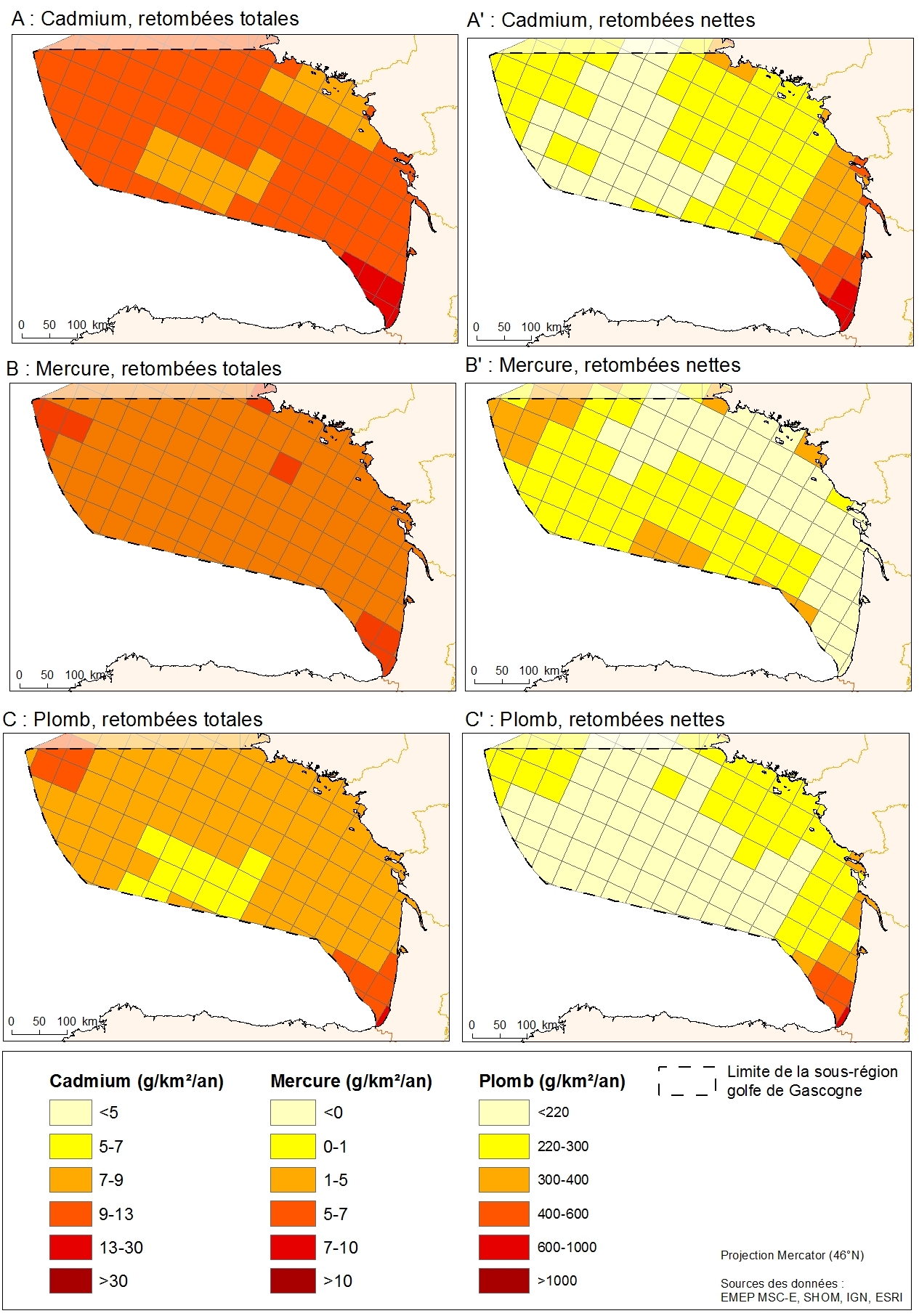
Atmospheric deposition net and total in g/km²/ year PCB153, lead, lindane, mercury, cadmium in the marine subregions English Channel - North Sea, Western Mediterranean, Celtic Seas and Bay of Biscay. This data has been collected on the website of the EMEP program under the "initial phase" of the MSFD. Referent expert AAMP: Aurélie Blanck.
-
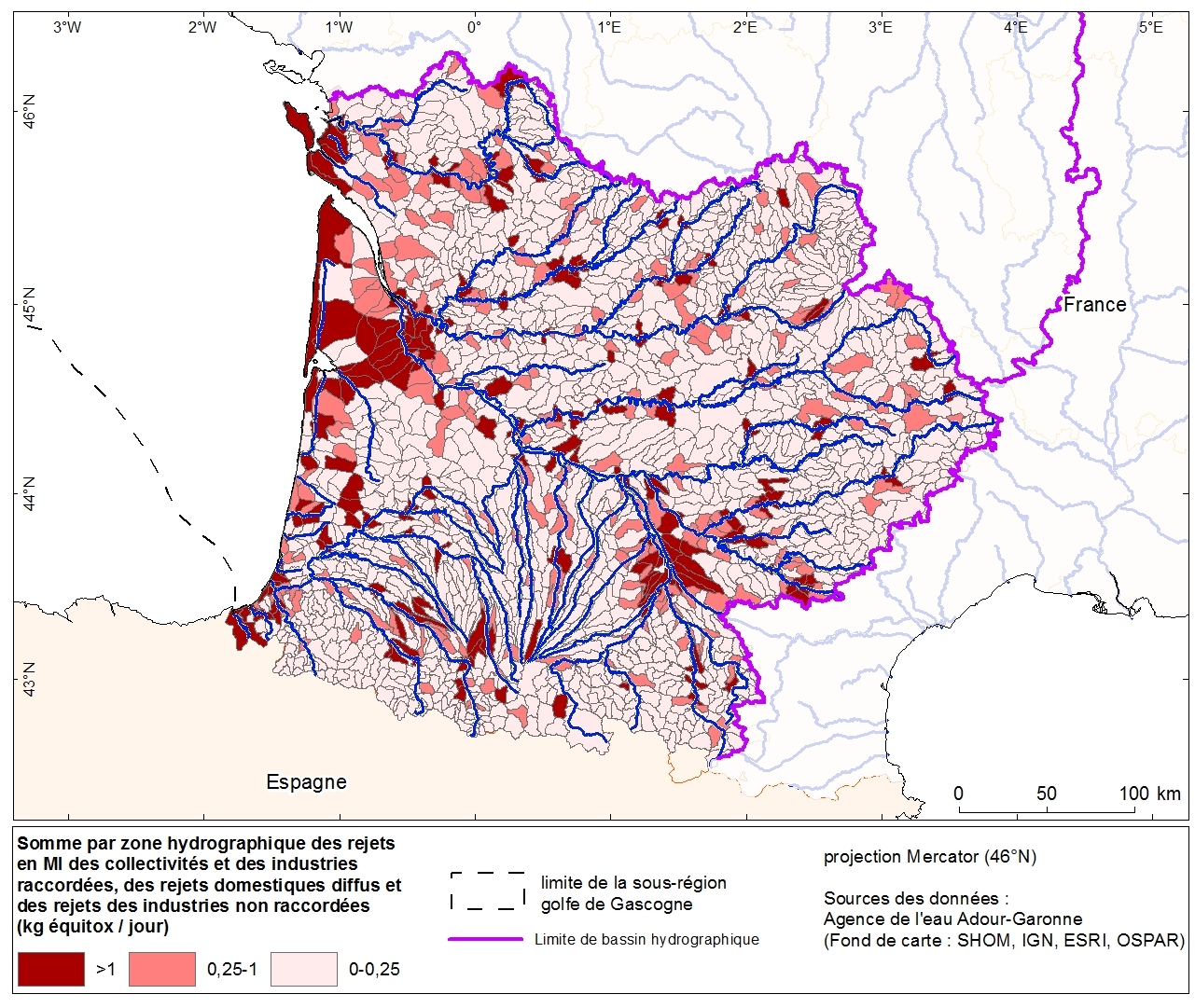
Discharges of nutrients (nitrogen, phosphorus and organic matter) and toxic releases (MI) per hydrographic zone from industries and communities of the Adour-Garonne basin. This data was collected as part of the initial assessment of the MSFD with the Water Agency of Adour-Garonne. Referent expert AAMP: Aurélie Blanck.
-
Programme bringing together networks that work with beached marine animals and the centres which care for them for indicator measurement 10.2.1 in the marine sub-regions of the western Channel, the Bay of Biscay and the Celtic Sea. This programme complements the Fulmar programme in the Channel North Sea marine sub-region.
-
Zones corresponding to the delimitation of major watersheds and related marine areas in the Seine-Normandy basin for the assessment of pressures on the different water masses on the Normandy coast and marine sub region English Channel - North Sea. Nutrient discharges from industries and communities.
 Catalogue PIGMA
Catalogue PIGMA